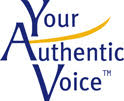 If I were to ask you who the most difficult person is, in your workplace or greater community, I know you’d come up with someone, probably immediately. Maybe you’d have more than one someone, although I hope not. If you’re very fortunate, no one would come to mind, but I’m sure you’ve known someone in the past.
If I were to ask you who the most difficult person is, in your workplace or greater community, I know you’d come up with someone, probably immediately. Maybe you’d have more than one someone, although I hope not. If you’re very fortunate, no one would come to mind, but I’m sure you’ve known someone in the past.
Why? Because where there are people, there is conflict. It’s inevitable, which is why it’s so perplexing we don’t spend more time learning how to be with it and process it effectively. After all, unless we’re living alone in a cave, we’re around people. Thank goodness! We need people. (I know you’re hearing the Barbra Streisand song right now.) Together, we make our lives full, rich and fun. And then, there are those times when we are resentful, angry, and hurt. We look at that other person as the source of our pain and are righteous in our judgment for whatever habit, characteristic or action has landed him or her on our list. That person is frozen in time. Ugh. Left unchecked, if we communicate from this position, we can create and experience negative consequences.
In Ike Lasater’s book, Words That Work In Business, he borrows a term from Nonviolent Communication (NVC) to describe a process we can use to prevent these negative consequences – the enemy image process. We have an enemy image “whenever I have a judgment, diagnosis or analysis of someone else or myself as a thought in my head.” When we hold an enemy image, it affects how we feel and go about our daily lives, often in ways we aren’t even aware of.
For example, let’s say you work with someone named John. John doesn’t acknowledge you when you see him in the hall. He doesn’t return your calls on a timely basis, or respond to your emails at all. The last time you two were in a committee meeting together, he made comments you thought undermined your credibility. As a result, you think John is just a jerk. You think he’s inconsiderate, unfriendly and sometimes just plain mean. This is your enemy image of John. An enemy image does not refute the “facts.” He indeed might not have returned your calls or emails, not said hi, and made comments in a meeting that refuted yours. It’s how you see John as a result of those actions that creates the enemy image.
So, what to do? Even though you might feel quite justified in your opinion of John, for the sake of your own sanity and your work relationship, give this process a try:
1. First, identify a need of yours that is not being met. It could be a need for respect, or consideration, or belonging. Whatever it is, once you know what the need is (and you’ll know it because you will have that sense in your body), you translate your judgment into the need not being met. Your mind will then start searching for a strategy to meet that need.
2. Second, by recognizing and acknowledging a need not met, you are giving yourself self-empathy. You may then experience a softening within yourself.
3. Third, guess what needs John might be trying to meet by his actions and give John silent empathy. This shifts your attention from the judgment to understanding and relating to his situation. He is human, too, trying to meet his needs.
4. Once you feel you have this understanding, find another person to process your thoughts and feelings. This is someone you trust, someone who won’t believe your negative thoughts about John, but rather be there for you as you process your judgments and consider possible strategies to meet both yours and John’s needs.
5. When you’re ready to have a conversation with John from a nonjudgmental, empathetic place, role play this conversation with your confidant. You could even switch roles and imagine yourself responding as John to create even greater empathy and understanding.
By changing the way you think about John, you radically change the potential outcome of your conversation. Our nonverbal body language will always communicate how we really feel about someone. When your nonverbals communicate empathy instead of judgment, that will go a long way toward reducing workplace conflict and stress and creating positive work relationships.
And please, take your time with this. It takes courage and great empathy to look at our judgments and make a change. To my mind, your peace of mind and relationships are at least worth the try. It can be easy to dismiss judgments we hold as no big deal and tolerate the discomfort because we think it’s normal. It doesn’t have to be, and quite frankly, you deserve better. The power is in your hands. Why not use it?
I’d love to support you! I can be reached at Andrea@AndreaBeaulieu.com

Leave A Comment